Related Research Articles

Yehudi Menuhin, Baron Menuhin, was an American-born British violinist and conductor who spent most of his performing career in Britain. He is widely considered one of the greatest violinists of the 20th century. He played the Soil Stradivarius, considered one of the finest violins made by Italian luthier Antonio Stradivari.

Julian Lloyd Webber is a British solo cellist, conductor and broadcaster, a former principal of Royal Birmingham Conservatoire and the founder of the In Harmony music education programme.
Richard Gilford Adeney was a British flautist who played principal flute with the London Philharmonic Orchestra and the English Chamber Orchestra, was a soloist and a founding member of the Melos Ensemble.
Elaine Shaffer was an American flutist and principal of the Houston Symphony Orchestra between 1948 and 1953.

George Enescu, known in France as Georges Enesco, was a Romanian composer, violinist, pianist, conductor, and teacher and is regarded as one of the greatest musicians in Romanian history.

Sir Malcolm Henry Arnold was an English composer. His works feature music in many genres, including a cycle of nine symphonies, numerous concertos, concert works, chamber music, choral music and music for brass band and wind band. His style is tonal and rejoices in lively rhythms, brilliant orchestration, and an unabashed tunefulness. He wrote extensively for the theatre, with five ballets specially commissioned by the Royal Ballet, as well as two operas and a musical. He also produced scores for more than a hundred films, among these The Bridge on the River Kwai (1957), for which he won an Oscar.
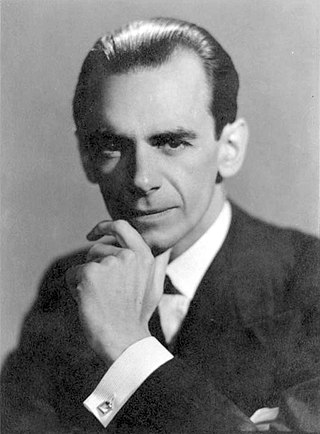
Sir Harold Malcolm Watts Sargent was an English conductor, organist and composer widely regarded as Britain's leading conductor of choral works. The musical ensembles with which he was associated included the Ballets Russes, the Huddersfield Choral Society, the Royal Choral Society, the D'Oyly Carte Opera Company, and the London Philharmonic, Hallé, Liverpool Philharmonic, BBC Symphony and Royal Philharmonic orchestras. Sargent was held in high esteem by choirs and instrumental soloists, but because of his high standards and a statement that he made in a 1936 interview disputing musicians' rights to tenure, his relationship with orchestral players was often uneasy. Despite this, he was co-founder of the London Philharmonic, was the first conductor of the Liverpool Philharmonic as a full-time ensemble, and played an important part in saving the Royal Philharmonic Orchestra from disbandment in the 1960s.

Léon Jean Goossens, CBE, FRCM was an English oboist.

Edward Elgar's Violin Concerto in B minor, Op. 61, is one of his longest orchestral compositions, and the last of his works to gain immediate popular success.
Archie Camden was a British bassoonist, a pedagogue and soloist who won international acclaim. In 1968 The Times said "If the bassoon is no longer considered to be the orchestra's clown, its rehabilitation is the result of Mr Camden's work as an orchestral player, soloist and teacher".

Hephzibah Menuhin was an American-Australian pianist, writer, and human rights campaigner. She was sister to the violinist Yehudi Menuhin and to the pianist, painter, and poet Yaltah Menuhin. She was also a linguist and writer, co-authoring several books and writing many papers with her second husband, Richard Hauser.
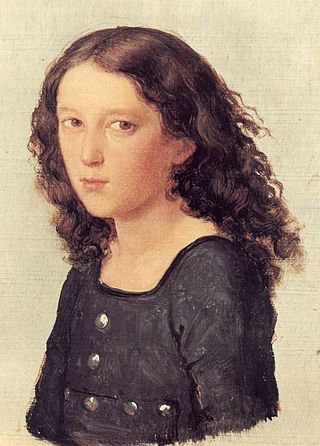
The Concerto for Violin and String Orchestra in D minor, MWV O 3, was composed by Felix Mendelssohn at the age of thirteen. It has three movements, Allegro–Andante–Allegro, and performance duration is approximately 22 minutes.
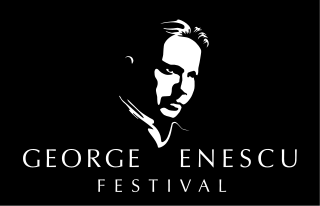
The George Enescu Festival, held in honor of the celebrated Romanian composer George Enescu, is the biggest classical music festival and classical international competition held in Romania and one of the biggest in Eastern Europe. The festival proposal was authored by Andrei Tudor in 1955. Enescu's close associate George Georgescu organized the first festival in 1958; highlights included a performance of Bach's Concerto for Two Violins with Yehudi Menuhin and David Oistrakh as soloists and a staging of Enescu's sole opera, Œdipe, with Constantin Silvestri conducting.
Ross Pople is a New Zealand-born British conductor. He is the principal conductor of the London Festival Orchestra. He has worked with Yehudi Menuhin, Clifford Curzon, David Oistrakh, Kentner, George Malcolm, Sir Adrian Boult, Rudolf Kempe, Benjamin Britten, Witold Lutosławski, Krzysztof Penderecki, Michael Tippett, Georg Solti, Leonard Bernstein, George Benjamin, John Casken, Edwin Roxburgh, Luciano Berio, John Tavener, Malcolm Arnold, Pierre Boulez as well as many other major orchestras, choirs and soloists.
Sophia Reuter, born in 1971, in Dresden, Germany, comes from a family with a long musical history. Her father was the late Rolf Reuter, a conductor, and her grandfather, the late Fritz Reuter, was a composer. Sophia is a violinist and violist with a varied solo, orchestral, chamber music and pedagogical career.
Anthony Bernard was an English conductor, organist, pianist and composer.
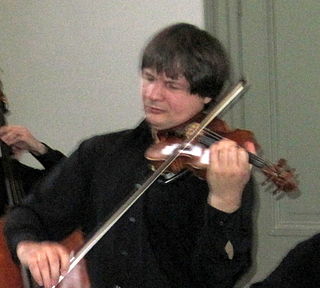
Liviu Prunaru is a Romanian violinist. He serves as the Royal Concertgebouw Orchestra's concertmaster together with Vesko Eschkenazy.

Alberto Lysy was a prestigious Argentine violinist and conductor of Ukrainian ancestry.

The Buenos Aires Philharmonic is an Argentine orchestra based in Buenos Aires. Founded in 1946, it is based in the renowned Teatro Colón, and is considered one of the most prestigious orchestras in its nation and Latin America, and has received several honours in 60 years of history. Their local counterparts in the national aegis are the Argentine National Symphony Orchestra and the Teatro Colón Orchestra. The orchestra's current Music Director is Mexican Enrique Diemecke.
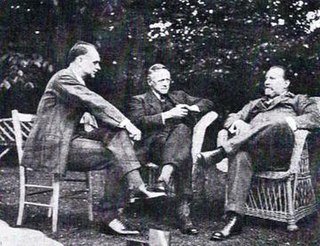
Thomas Edward Clark was an English conductor and music producer for the BBC. Through his positions in leading new music organizations and his wide-ranging contacts with British and European composers, he had a major impact on making contemporary classical music available to the British public for over 30 years. He was a leading figure in the BBC's Concerts of Contemporary Music between 1926 and 1939, and he played a significant role in the founding and early development of the BBC Symphony Orchestra. He held prominent positions in the International Society for Contemporary Music (ISCM) from its inception in 1922, and was its president from 1947 to 1952.
References
- 1 2 3 Craggs, Stewart R. (1998). Malcolm Arnold: A Bio-bibliography at Google Books. Greenwood Publishing Group. page 20. ISBN 0-313-29254-X.
- ↑ Jackson, Paul R.W. (2003). The Life and Music of Sir Malcolm Arnold: The Brilliant and the Dark at Google Books. Ashgate Publishing. pp. 118-9, 234. ISBN 1-85928-381-0.